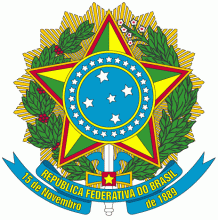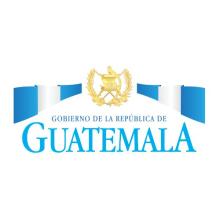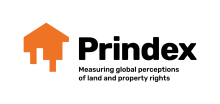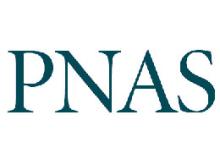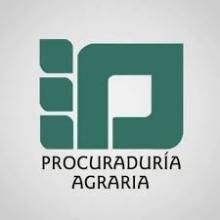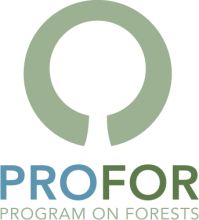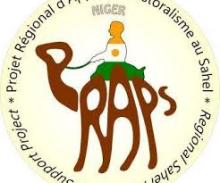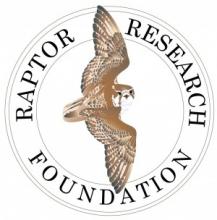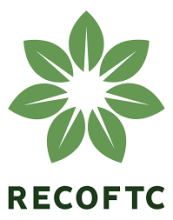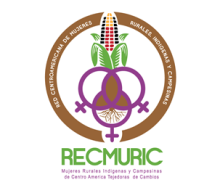La Biblioteca de la Tierra incluye recursos de más de 1.890 proveedores de información nacionales e internacionales. Aprenda más sobre las organizaciones e instituciones que utilizan el Land Portal para compartir sus investigaciones, datos e historias con acceso abierto.
Practical Action
Practical Action is an international non-governmental organisation (NGO) that uses technology to challenge poverty in developing countries.
We find out what people are doing and help them to do it better. Through technology we enable poor communities to build on their skills and knowledge to produce sustainable and practical solutions- transforming their lives forever and protecting the world around them.
Presidencia de la República Guatemala
El Presidente de la República de Guatemala es el jefe de Estado y de gobierno de Guatemala por mandato del pueblo. El actual Presidente de la República de Guatemala es el Lic. Jimmy Morales Cabrera. Su tratamiento oficial es El Excelentísimo Señor Presidente Constitucional de la República de Guatemala.
El Presidente de la República actúa siempre en Consejo de Ministros o de manera individual con cada ministro de Estado. El Presidente de la República es el Comandante General del Ejército de Guatemala y Oficial Superior de la Policía Nacional Civil. Él representa la unidad nacional y debe velar por los intereses de toda la población de la República, además es el Gran Maestre de la Orden del Quetzal y de todas las condecoraciones del país.
El Presidente, Vicepresidente, los ministros, viceministros, secretarios, funcionarios y empleados públicos respectivos integran el Organismo Ejecutivo y tienen prohibido por la Constitución Política de la República el pertenecer a cualquier partido político. La sede de su Gobierno se encuentra en el Palacio Nacional de la Cultura, Zona 1 de la Ciudad de Guatemala y su residencia oficial es la Casa Presidencial, en la cual vive con la Primera Dama o el Primer Caballero de la Nación y su familia.
Fuente: Wikipedia
Pretoria University Law Press
The Pretoria University Law Press (PULP) is based at the Faculty of Law, University of Pretoria, South Africa. PULP endeavours to publish and make available innovative, high-quality scholarly texts on law in Africa. PULP also publishes a series of collections of legal documents related to public law in Africa, as well as text books from African countries other than South Africa.
Princess Maha Chakri Sirindhorn Anthropology Centre
The Princess Maha Chakri Sirindhorn Anthropology Centre (public organization) (hereafter "SAC") is an non-profit academic institution that was initially established by Silpakorn University, Bangkok, Thailand in 1991 in commemoration of Her Royal Highness Princess Maha Chakri Sirindhorn's 36th birthday. The SAC was established in Her Royal Highness's honor and seeks to fulfill her wish to establish and develop a national institution responsible for the systematic gathering, processing and servicing of anthropological data. The SAC is committed to fostering academic progress through the extension of anthropological knowledge, through the propagation of new research and findings, through the encouragement and support of development in research studies, and in the accumulation of an extensive collection of anthropology materials (with a focus on Thailand and Southeast Asia).
Princeton University
hartered in 1746 as the College of New Jersey — the name by which it was known for 150 years — Princeton University was British North America’s fourth college. Located in Elizabeth for one year and in Newark for nine, the College of New Jersey moved to Princeton in 1756. It was housed in Nassau Hall, which was newly built on land donated by Nathaniel FitzRandolph. In 1896, when expanded program offerings brought the College university status, the College of New Jersey was officially renamed Princeton University. The Graduate School was established in 1900.
Fully coeducational since 1969, Princeton for the past academic year (2016-17) enrolled 8,181 students — 5,251 undergraduates, 2,781 graduate students and 149 special students. The ratio of undergraduate students to faculty members (in full-time equivalents) is 5 to 1.
The University provides its students with academic, extracurricular and other resources — in a residential community committed to diversity — that prepare them for positions of leadership and lives of service in many fields of human endeavor.
Living up to its unofficial motto, “In the Nation’s Service and the Service of Humanity,” Princeton University has educated thousands of individuals who have dedicated their lives to public service, including two U.S. presidents (Woodrow Wilson and James Madison); hundreds of U.S. and state legislators (the House of Representatives, for example, has housed a Princeton alumnus every year since it first met in 1789); and 44 governors, including 11 New Jersey governors.
Each year, many members of the student body, faculty, staff and local alumni volunteer in community service projects throughout the region. The University as an institution supports many service initiatives.
As a global research university, Princeton seeks to achieve the highest levels of distinction in the discovery and transmission of knowledge and understanding. At the same time, Princeton is distinctive among research universities in its commitment to undergraduate teaching. Interdisciplinary work is vital to Princeton and is reflected in a full spectrum of academic programs.
Princeton’s central campus consists of approximately 9.2 million square feet of space in more than 190 buildings on 500 acres. The University also accommodates more than 1,000 units, totaling more than 1.2 million square feet, of rental housing for graduates and faculty/staff. The University owns more than 1,040 acres in Princeton, more than 860 acres in Plainsboro Township and more than 520 acres in West Windsor Township.
The University, with approximately 6,700 benefits-eligible employees, is one of the region’s largest private employers. It brings close to 850,000 visitors to the region each year.
Prindex
PRIndex, the Global Property Rights Index, is a collaborative initiative between Global Land Alliance and the Overseas Development Institute (with staff from both organisations working on the project alongside expert consultants), that aims to develop and roll out the first global measurement of peoples’ perceptions of their property rights. PRIndex is looking to establish a global and national-level baseline of perceptions of land tenure security, which will provide the grounding for a global conversation and movement around securing the property rights of billions who currently lack them.
Probe International
Probe International is an independent environmental advocacy group that fights to stop ill-conceived aid, trade projects, and foreign investments. But more importantly, we work to give citizens the tools they need to stop these projects – the rule of law, democratic processes, and honest and transparent accounting.
Probe International goes where few others tread. We resurrected the doctrine of odious debts to challenge the enforceability of today’s Third World debts; we argue that markets can work to improve people’s living standards and protect their environment when they are decentralized, competitive, and governed by the rule of law; we maintain that state-to-state aid has undermined political accountability and promoted a culture of corruption in both the donor and receiving nation and should be abolished; we have warned for the past decade that carbon credit schemes will threaten Third World environments; and we think the best way to protect the environment is to entrench and enforce the individual and collective property rights of citizens.
Procasur
La Corporación PROCASUR ha trabajado desde 1996 en el desarrollo y difusión de herramientas y metodologías para la gestión efectiva del conocimiento, fomentando la capacidad de los actores públicos y privados que participan en la lucha contra la pobreza rural, en América Latina y el Caribe. Mediante la vinculación de instituciones internacionales y organizaciones regionales con gobiernos locales, talentos y comunidades rurales, buscamos identificar, nutrir y compartir ideas innovadoras y buenas prácticas, en temas como acceso a mercados, financiamiento, gestión de recursos naturales, medio ambiente y tecnología, empoderamiento, inclusión y ciudadanía, entre otros.
A partir de 2010, y como parte de una estrategia de cooperación Sur-Sur, PROCASUR estableció oficinas regionales en Asia Pacífico (Tailandia), y África (Kenia), sumando estos continentes a las redes de conocimiento impulsadas por la organización. La institución ha facilitado oportunidades de aprendizaje en más de 35 países, tomando a los talentos locales como ejes de generación y divulgación de conocimientos.
Filosofía
Conocimiento local con valor global. PROCASUR cree que el conocimiento es poder y que promoviendo su intercambio se puede contribuir a un desarrollo rural sostenible e inclusivo. PROCASUR aposta a valorar y difundir prácticas de los actores que impulsan iniciativas en los territorios y poblaciones rurales. Su enfoque para compartir, almacenar y diseminar información es práctico y para necesidades específicas.
Talentos locales. PROCASUR construye capacidad y promueve a los y las talentos locales, portadores de un saber-hacer, valorable como activo para el empoderamiento de comunidades, asociaciones, negocios y grupos específicos como proveedores de servicios de conocimiento. PROCASUR pone a disposición este saber-hacer sistematizado y documentado desde los talentos y sus experiencias, apoyando la valorización de estos activos como insumo para la generación de iniciativas y políticas públicas. Su red incluye más de 2322 talentos locales o campeones de conocimiento, que representan 460 comunidades, organizaciones, entidades públicas y privadas en diversos ámbitos, promoviendo su integración a mercados de conocimiento y asistencia técnica rural.
Cooperación Sur-Sur. PROCASUR conecta el hemisferio sur, sus experiencias y talentos. Sirve como almacén de conocimiento para organizaciones internacionales, regionales y nacionales. Promueve puentes de comunicación integral e incluyente entre actores locales, promotores de desarrollo y diseñadores de políticas públicas.
Scaling-up (escalamiento) e incidencia. PROCASUR tiene un fuerte enfoque hacia la expansión o escalamiento de intervenciones exitosas o innovadoras. Esta estrategia permite entre otro: identificar y dar a conocer innovaciones destacando su efectividad para disminuir la pobreza rural y; provocar e incentivar la acción pública, para que sean los propios actores los que impulsen las innovaciones realmente efectivas y pertinentes, las institucionalicen y las sostengan en el tiempo. PROCASUR está buscando incidir en procesos de incidencia política mediante estrategias de producción de conocimiento; construcción de alianzas y redes; y demostración de resultados de experiencias exitosas.
Impacto. Las metodologías, herramientas de aprendizaje y de gestión del conocimiento de PROCASUR apuntan a resultados concretos, promoviendo la implementación de innovaciones y la articulación de actores para la adopción de buenas prácticas efectivas en procesos de desarrollo.
Proceedings of the National Academy of Science
PNAS is one of the world's most-cited and comprehensive multidisciplinary scientific journals, publishing more than 3,800 research papers annually. Established in 1914, PNAS publishes cutting-edge research, science news, Commentaries, Reviews, Perspectives, Colloquium Papers, and actions of the National Academy of Sciences.
The journal's content spans the biological, physical, and social sciences and is global in scope. Nearly half of all accepted papers come from authors outside the United States.
PNAS publishes only the highest quality scientific research. Every published paper is peer reviewed and has been approved for publication by an NAS member. Submissions are accepted from all researchers; authors do not need to have a connection to an NAS member to publish in PNAS.
Procuradoría Agraria de México
La procuración de justicia para los hombres y mujeres del campo no es una invención o preocupación nueva; tiene sus antecedentes en la época colonial, cuando el Protector Fiscal era responsable de pedir la nulidad de las composiciones de tierras que los españoles hubieren adquirido de indios, en contra de las cédulas reales y ordenanzas o con algún otro título vicioso.
En 1953, por decreto Presidencial se integró la Procuraduría de Asuntos Agrarios, con el objetivo de asesorar gratuitamente a los campesinos a petición de parte, a los solicitantes de tierras y aguas, y a los campesinos que hubieren sido dotados de las mismas, en los problemas jurídicos, administrativos, etc., que se suscitaran con motivo de sus gestiones o de la defensa de sus legítimos intereses.
Como resultado de las Reformas al Artículo 27 Constitucional y la promulgación de la Ley Agraria, se creó la Procuraduría Agraria, como un Organismo Descentralizado de la Administración Pública Federal, con personalidad jurídica y patrimonio propios. Se encarga de asesorar a los campesinos en sus relaciones jurídicas y orientarlos respecto de sus derechos y la forma de ejercerlos.
Program on Forests
Well-managed forests have the potential to reduce poverty, spur economic development and contribute to a healthy local and global environment. The Program on Forests (PROFOR) was created in 1997 to support in-depth analysis, innovative processes and knowledge-sharing and dialogue, in the belief that sound forest policy can lead to better outcomes on issues ranging from livelihoods and financing, to illegal logging, biodiversity and climate change. Since 2002, the program has been managed by a core team based at the World Bank, with support from multiple donors. PROFOR encourages a big-picture approach to forest conservation and management in developing countries, with a particular focus on four themes:
- Livelihoods
- Across Sectors
- Financing Sustainable Forest Management
- Governance
Programa Democratización y Construcción de la Paz
El programa Democratización y construcción de la paz (DCP) es una alianza de organizaciones para la promoción y defensa del derecho a la tierra. Impulsado por la Red Rural, Codehupy, Pojoaju, CDE, Fundación Vencer, GACII, Base Is y Serpaj Py con financiación de ICOO y Kerk in Actie.
Servicios realizados: Redacción de gacetillas informativas, comunicados, notas y otros documentos de difusión del programa. Realización de un Plan de Comunicación y Medios. Ejecución de cronograma de actividades del Plan de comunicación. Organización de conferencias y reuniones de prensa, y visitas a medios de comunicación. Diseño y desarrollo de sitio web y cuentas en redes sociales. Administración (redacción, publicación de materiales, y contenido fotográfico y audiovisual) del sitio web institucional. Administración de redes sociales. Ejecución del Plan de medios. Asesoramiento comunicacional.
Programa Interreg Sudoe
El Programa Interreg Sudoe apoya el desarrollo regional en el sudoeste de Europa financiando proyectos transnacionales a través del Fondo Europeo de Desarrollo Regional (FEDER).
El Programa promueve la cooperación transnacional para resolver problemas comunes a las regiones del sudoeste europeo, como la baja inversión en investigación y desarrollo, la baja competitividad de la pequeña y mediana empresa y la exposición al cambio climático y a riesgos ambientales.
El Programa Interreg Sudoe (abreviatura de Programa de Cooperación Interreg V-B Europa Suroccidental) fue aprobado por la Comisión Europea el 18 de junio de 2015 con un presupuesto de 141 millones de euros. El texto completo está disponible en español, francés, portugués e inglés.
Projecto Apoio ao Desenvolvimento dos Sistemas Judiciários
No âmbito do Projecto Apoio ao Desenvolvimento do Sistema Judiciário PIR PALOP financiado pelo FED e pelo IPAD, estão a ser criadas Bases de Dados de toda a Legislação e Jurisprudência publicada desde a independência até à actualidade em todos os PALOP, num processo que envolve igualmente capacitação institucional.
O consórcio luso-angolano liderado pela Ecosphere (Consultores em Ambiente e Desenvolvimento, Lda. - Portugal) e integrado pela Barents (Investigação e Desenvolvimento Tecnológico, Lda. – Portugal) e pela Pecar (Assessoria e Consultoria Técnica – Angola) responsável pela criação das bases de dados irá realizar em Lisboa (Hotel Vip Arts), nos dias 10, 11 e 12 de Novembro, uma sessão de trabalho conjunta.
Após o estabelecimento de contactos nos cinco países envolvidos e o levantamento in loco das necessidades e da informação existente, a presente sessão reunirá os pontos focais nomeados pelos respectivos Ministros da Justiça de cada PALOP, os Presidentes das Imprensas Nacionais, os Ordenadores Nacionais do Fundo Europeu de Desenvolvimento e representantes de outras entidades co-financiadoras e a equipa de assistência técnica (composta por consultores nacionais e a equipa multidisciplinar de coordenação).
A agenda de trabalhos incluirá, entre outros pontos, a discussão e aprovação das características do sistema informático, a capacitação técnica dos representantes de cada país na recolha, selecção e análise da legislação, jurisprudência e doutrina relevante bem como a identificação de cenários para a sustentabilidade futura das Bases de Dados Jurídicas.
Projet Régional d'Appui au Pastoralisme au Sahel
Objectif du projet : L’objectif de développement (ODP) est «d'améliorer l’accès à des moyens et services de production essentiels et aux marchés pour les pasteurs et agropasteurs dans des zones transfrontalières sélectionnées et le long des axes de transhumance dans les six pays du Sahel, et d’améliorer la capacité de ces pays à répondre à temps et de façon efficace en cas de crises pastorales ou d’urgences ». De cette façon, le projet proposé soutiendra l'amélioration de la productivité, la durabilité et la résilience des moyens d'existence pastoraux, comme une priorité dans la Déclaration de Nouakchott sur le pastoralisme. L'ODP sera atteint grâce à une combinaison d'investissements stratégiques, de renforcement des capacités et de dialogue politique. La population pastorale comprend toutes les personnes (actives ou non de tous âges) qui sont membres d'un ménage pratiquant l'élevage qui: (i) obtient au moins 90 pour cent de ses besoins en aliments pour animaux dans la végétation naturelle et (ii) tire au moins 50 pour cent de ses revenus de l'élevage. La population pastorale comprend toutes les personnes (actives ou non de tous âges) qui sont membres d'un ménage pratiquant l'élevage qui: (i) obtient 10 % ou plus de ses besoins en aliments pour animaux à partir des résidus de cultures et (ii) tire au moins 50 pour cent de son revenu des activités de culture. Zone du projet Le PRAPS couvre 6 pays d'Afrique de l'ouest et centrale : Burkina Faso, Mali, Mauritanie, Sénégal, Niger et Tchad. Ces pays illustrent des zones de concentration du PRAPS principalement situées en zone sahélienne avec quelques incursions en zone saharienne et soudanienne. Elles sont l’expression des itinéraires majeurs de transhumance dans le Sahel. À l'intérieur de cette zone de concentration, chaque pays a identifié des zones de concentration spécifiques liées aux axes majeurs de transhumance inter-frontaliers.
Promotion of Indigenous and Nature Together
POINT (Promotion of Indigenous and Nature Together) was established in March 2012. It is started as a response to the lack of organization led by “Indigenous Peoples” working for Indigenous Peoples’ issues in Myanmar. In the past, only the religious organizations are the strong civil society working for its related indigenous people’s needs of humanitarian and development assistance to some extent. Therefore, the organization POINT was formed in order to fill the gap of promoting the rights of indigenous peoples along with increased awareness on environmental related knowledge.
After 2010 election, with the new government’s development plan for the country, most of indigenous peoples’ land once the civil war areas are marked for special economic zones, mega dam, mono cropping such as rubber plantation, Gold Mining, Coal, High way road, Deep Sea Port, etc. Thus, indigenous communities are those who will have either positive or negative impacts from the development projects that come alone with peace process in Myanmar. Hence, POINT is working together with indigenous communities so as to fulfill rapidly for the awareness raising to Indigenous communities on UNDRIP and FPIC and other right based approach to development mechanism as well as to advocate and raise the concern of people to the government in relation to sustainable development and natural resource management.
Mission
“Indigenous Peoples in Myanmar have rights on their existence and their roles on sustainable development initiatives is recognized and ensured at national, regional and international level.”
Objectives
- To promote awareness on the rights of IPs in Myanmar
- To engage sustainable development initiatives in promoting natural environment of indigenous territories
- To advocate the right based approach to Development specifically for IPs in Myanmar
- To establish national network of IPs in Myanmar
Protected Planet
Protected Planet is the most up to date and complete source of information on protected areas, updated monthly with submissions from governments, non-governmental organizations, landowners and communities. It is managed by the United Nations Environment World Conservation Monitoring Centre (UNEP-WCMC) with support from IUCN and its World Commission on Protected Areas (WCPA).
Protection International
We aspire to a world in which fundamental human rights and fundamental freedoms are universally recognized and respected by all, and where everyone has the right to defend these rights and freedoms without fear of threats or attack.
PRS Legislative Research
PRS Legislative Research (PRS) seeks to strengthen the legislative process by making it better informed, more transparent and participatory. Through its work, PRS seeks:
- To provide independent and non-partisan, research support to Members of Parliament (MPs) and Members of Legislative Assemblies (MLAs) across party lines on all legislation and policy debates in the legislature
- Track the functioning of legislatures and legislators by releasing detailed data and analysis
- Devise means by which citizens are more aware and engaged in the policy making process.
PRS was founded in 2005 as an independent research initiative. The initiative was incubated in the Centre for Policy Research (CPR), New Delhi, which is a leading Indian think tank. With the intellectual and institutional support of CPR, PRS has been able to build and deepen its engagement with legislators, media and citizen groups to strengthen the legislative process. Recently, the initiative has been institutionalised as a not-for-profit Section 25 Company, the Institute for Policy Research Studies.
The work of PRS was initiated with a grant from Ford Foundation, and subsequently by Google.org. Currently, the work of PRS is supported by a number of Indian institutions and individuals.
PRS tracks the functioning of the Indian Parliament and works with MPs from the Lok Sabha and Rajya Sabha across political parties and MLAs from various states. PRS provides a comprehensive and credible resource base to access Parliament-specific data, background information on Parliamentary and governance processes and analysis of key legislative and policy issues.
PRS aims to deepen and broaden the legislative process by providing MPs with the necessary data and analysis for debates in Parliament. This is done by synthesising feedback from a range of stakeholders to provide MPs with comprehensive information on an issue. The aim is to complement the knowledge base and expertise that already exists in the government, citizen’s groups, businesses, and other research institutions.
PRS publishes concise analysis of Bills introduced in Parliament, background research notes on issues of national importance, statistics, graphs and data analysis on Parliament activity and legislation. Besides this PRS holds interactive sessions for the exchange of ideas on key policy issues between MPs and an expert in the field during Parliamentary session.
PRS aims to increase public engagement in the legislative process and on issues of national importance. This is done by providing information on policy issues, legislative analysis and parliamentary processes in the public domain and through collaborative activities with citizens groups and the media. The PRS Legislative Assistants to Members of Parliament (LAMP) Fellowship is a platform for young Indians to have a high-impact engagement with the policy-making process at the national level by working with MPs.
The website is updated daily on Parliament’s activities and legislative news. Engagement with citizens is facilitated through the PRS Blog, Twitter and Facebook pages. Workshops are held for journalists on tracking the activities of MPs and MLAs. In addition, PRS provides inputs to the press and electronic media on the legislative agenda in Parliament, as well as data on legislative performance. Members of the PRS team are often approached to contribute columns to provide a perspective on various key Bills.
Ra Ximhai
Ra Ximhai es una revista científica creada y respaldada por la Universidad Autónoma Indígena de México, con la finalidad de difundir los resultados de la investigación sobre las ciencias sociales, tanto de investigadores mexicanos como de otros países.
Toda contribución es sometida a un estricto arbitraje. Su periodicidad es semestral. Además de la versión impresa, el contenido completo está disponible en su versión electrónica, sin costo adicional.
Radbout Universiteit
According to the Dutch university information guide Keuzegids Universiteiten 2020 (for Bachelor's programmes), Radboud Unversity is the best traditional, general university in the Netherlands. Two programmes have received a Top Programme designation, nine programmes are deemed the best in their field by the Keuzegids.
The Keuzegids Masters 2019 awarded nine master's programmes Top Programme status and six were deemed best in their field.
Rainforest Alliance
The Rainforest Alliance is an international non-profit organization working at the intersection of business, agriculture, and forests to make responsible business the new normal. We are an alliance of companies, farmers, foresters, communities, and consumers committed to creating a world where people and nature thrive in harmony.
Rainforest Foundation UK
The Rainforest Foundation UK (RFUK) is a non-profit NGO working in Africa and South America. It is one of the first international organizations to support the indigenous peoples of the world's rainforests in their efforts to protect their environment and fulfill their rights to land, life and livelihood. The Foundation aims to protect rainforests by securing the land rights of indigenous peoples and other forest-dependent communities. It also campaigns internationally on issues such as industrial logging, climate change, agricultural expansion and nature conservation.
Raptor Research Foundation
The Raptor Research Foundation (RRF) is a non-profit scientific society whose primary goal is the accumulation and dissemination of scientific information about raptors.
Following those horrific decades from the 1930s to the 1950s when most folks shot and poisoned raptors as “good-for-nothing chicken-hawks”, bird of prey populations were next subjected to a barrage of chemical abuses ranging from both the direct and indirect effects of pesticides and industrial by-products, e.g. organochlorines and organophosphates, polybrominated biphenyls, heavy metals and rodenticides. Unable to reproduce their numbers, several raptor species, e.g. peregrine falcons and bald eagles, teetered on the brink of extinction in the early 1970s. But it was not all bad news – there were also people out there who cared, i.e. falconers, academics, educators, rehabilitators, government biologists. And together, they organized an “army” to help birds of prey. That army today is called the Raptor Research Foundation (RRF).
RCN Justice & Démocratie
La mission de RCN J&D est de « Promouvoir et appuyer une Justice de Proximité et une Justice Transitionnelle, ainsi que des pratiques démocratiques dans des sociétés et des Etats en transition ou en développement et sensibiliser le public européen à la prévention des conflits. »
Nos objectifs :
Promouvoir et appuyer le (r)établissement de l’Etat de droit et le respect des droits de l’Homme en vue du développement durable ;
Promouvoir et appuyer la résolution des conflits du passé en vue de la prévention de nouveaux conflits et de la consolidation d’une paix durable.
RECOFTC
RECOFTC
RECOFTC is derived from an abbreviated form of the organization's legal name, Regional Community Forestry Training Center for Asia and the Pacific. Formerly the organization was known as RECOFTC – The Center for People and Forests.
RECOFTC – The Center for People and Forests is an international not-for-profit organization that focuses on capacity building for community forestry in the Asia Pacific region. It advocates for the increased involvement of local communities living in and around forests - some 450 million people in Asia-Pacific - in the equitable and ecologically sustainable management of forest landscapes.
The Regional Community Forestry Training Center for Asia and the Pacific (RECOFTC) opened in Bangkok, Thailand, in March 1987 with support from the United Nations Food and Agriculture Organization, the Government of Switzerland (through the Asian Development Bank), and Thailand's Kasetsart University.
Community forestry is widely acknowledged as a powerful solution for many of the challenges facing local people and the wider society, especially in improving rural livelihoods, enhancing community governance and empowerment, transforming forest-related conflict, protecting and enhancing the environment, and helping to fight climate change. As a capacity-building organisation, RECOFTC improves the ability of people and organisations to conduct community forestry effectively and sustainably.
RECOFTC works toward its mission through four thematic areas:
- expanding community forestry
- people, forests and climate change
- transforming forest conflict
- securing local livelihoods.
RECONCILE
Resource Conflict Institute (RECONCILE) is a regional policy research and advocacy NGO registered in Kenya and implementing programmes in Kenya, Uganda and Tanzania. The Institute conducts policy and legal research on environmental and natural resources, undertakes public interest environmental and natural resources education and litigation and advocate for policies, laws and practices that empower resource dependent communities to influence policy processes and institutions that have a bearing on their access to natural resources and management of natural resource conflicts.
Red Andaluza de Dinamizadoras de Consumo Responsable y Alimentación Ecológica
Quiénes Somos
Somos un movimiento social de ámbito andaluz que aglutina a mujeres y asociaciones de mujeres de toda Andalucía. Comenzamos nuestra andadura como asociación a finales de 2006 y nos une el afán de crear redes de personas comprometidas con la equidad entre mujeres y hombres y con un modelo de producción, transformación, comercialización y consumo de alimentos más ético, justo y ecológico.
En estos momentos, la base más fuerte de la asociación está en Granada, donde se encuentra la actual Junta Directiva, existiendo vocalías en esta ciudad así como en Jaén y Málaga. Nuestra intención es seguir contactando con otras asociaciones y mujeres que compartan nuestras inquietudes en el resto de provincias de Andalucía, porque somos conscientes de la existencia de otros grupos de mujeres que trabajan en torno a estos temas en nuestra región y queremos aunar fuerzas y esfuerzos con todas ellas en esta línea de trabajo.
¿Cuáles son nuestros fines?
Entre los fines de la Red de Dinamizadoras se encuentran promocionar la equidad de género; fomentar un modelo de agricultura de futuro, respetuoso con el medio ambiente y la salud de las personas; facilitar formación en temas de consumo, salud, educación ambiental y técnicas de formación y sensibilización; poner en contacto a consumidores/as y productores/as, potenciando estas relaciones y facilitando el surgimiento de nuevos puntos de venta de productos ecológicos y redes de comercio a través de canales cortos y favorecer el intercambio de información y experiencias entre colectivos de mujeres de ámbitos geográficos distintos.
Red Centroamericana de Mujeres Rurales, Indígenas y Campesinas
La RECMURIC es una Red Centroamericana de Mujeres Rurales, Indígenas y Campesinas que mediante la promoción, exigibilidad y el ejercicio de nuestros derechos humanos, demandas y propuestas políticas, generamos cambios en la vida de las mujeres, en nuestros territorios y en las políticas públicas para el buen vivir.


